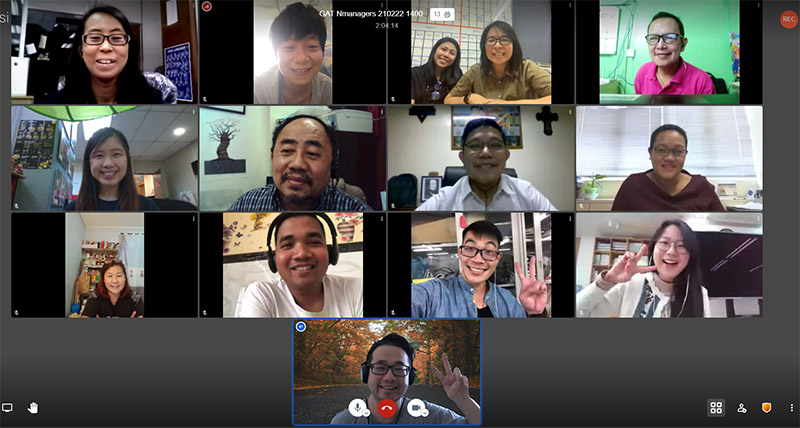GATN: Responsible and Sustainable Tourism Mini Workshop
Last Updated (Wednesday, 24 February 2021 23:29)
The GATN managers around the Asia Pacific region met on 22nd February 2021 for a short but informative sharing on "GATN as a Social Enterprise" by Mr. Chris Wong, a lecturer in the Hong Kong Polytechnic University.
GATN is promoting alternative and sustainable travel/tourism as a response to the negative impacts of mass tourism and climate change. At the same time, GATN is also committed to help local hosting communities become the subjects of tourism and benefit appropriately from responsible and sustainable travel.
This webinar is part of a series of trainings to equip GATN managers in local YMCAs to organise and promote social enterprise as a model for responsible, sustainable and resilient tourism. Hopefully this can help local hosting communities become less vulnerable to changes/crisis such as a pandemic and political disputes.
So, what is a "social enterprise"?
● It is a community-based economy
● Providing services or goods to persons or communities whose needs were not met by private companies or government.
● Model: Sharing economy (became a phenomenon in East Asia when many social-economic problems, e.g., income inequality, poverty arose after the crises in the 1990's)
● All value goes back to the community
Chris shared the 5-key pillar for sustainable tourism, which are:
● Tourism Policy and Governance - What we should include in sustainable tourism development
■ What are the existing government initiatives?
■ Is there any support from the gov. to social enterprise?
● Trade, Investment, Data, and Competitiveness - Understanding your local business environment
■ What are niche markets we can aim for to sustain the business?
● Employment, Decent Work and Capacity Building - Employment
■ How to incorporate people who are out of a job and include them in the workforce?
● Poverty reduction and social inclusion
■ How to prevent over-tourism?
■ How can the local community generate sustainable income?
● Sustainability of Natural and Cultural Environment
■ How does tourism work in hand with sustaining the natural and cultural environment?
Chris also touched that sustainable tourism encompasses the following SDGs (Sustainable Development Goals):
● SDG 8 - Decent Work and Economic Growth
● SDG 12 - Responsible Consumption and Production
● SDG 14 - Life Below Water
We also learned about how social enterprises work worldwide and heard encouraging models from South Korea, Hong Kong, Cambodia, India, and Peru.
There are 5 types of social enterprise models to follow:
1. Trading Non-Profit Organizations (NPO)
- NPOs looking for other sources of income or seeking to achieve financial sustainability through the delivery of social services (other than work integration)
2. Work Integration Social Enterprise (WISE)
- Provision of (stable or temporary) job opportunities with training and/or employment services
3. Non-profit cooperative
- Collective self-employment and innovative responses to unmet needs based on cooperative tradition
4. Non-Profit and For-Profit Organizations NPO-FPO partnership
- Involvement of private companies (or company foundations) to support NPOs or joint initiatives with a social mission
5. Community Development Enterprise
- Multi-stakeholder partnerships (NPO, FPO and public) promoting participatory local development
When asked which model works best for beginner YMCAs? It seems that model 5 was the best where social impact, innovative solutions, and sustainable business models connect.
Conclusion
Every YMCA is at a different stage when it comes to running a social enterprise.
● Big organizations – want to impact communities and give full value.
● Small and Medium – embark on social enterprises to gain income while serving communities.
Where can we start?
We can train, educate, and work with our local communities to understand their needs and how it relates to our individual YMCA goals.
We must conclude that there are indeed many types of models as well as different stages of growth. The key is helping and support one another by sharing experiences and partnering in responsible and sustainable tourism ventures.
Michael Cheong
Assistant General Secretary, YMCA Penang
YMCA Malaysia







